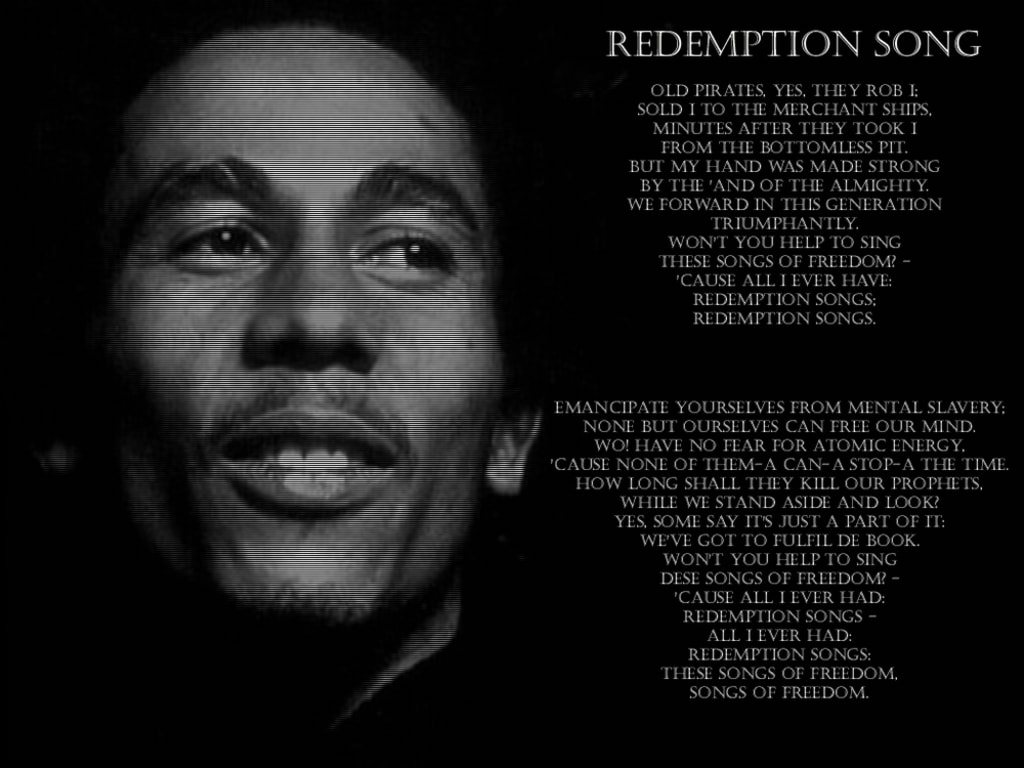Redemption Song by Bob Marley: A Legacy of Hope and Freedom
The Power of Redemption: Unpacking Bob Marley's Iconic Song

Bob Marley was one of the most influential musicians of the 20th century. Born in Jamaica in 1945, Marley grew up in poverty and faced countless challenges throughout his life. Despite these hardships, he became an icon of hope and freedom, inspiring millions of people around the world with his music.
One of Marley's most famous songs is "Redemption Song," which was released in 1980 on his final album, "Uprising." The song is a powerful expression of the human spirit, calling for freedom and justice in the face of oppression and inequality.
Singer's Background and Career
Bob Marley was born in Nine Mile, Jamaica, to a mixed-race family. His father was a white Jamaican of English and Syrian descent, while his mother was a black Jamaican. Marley's childhood was marked by poverty and hardship, but he found solace in music, singing with his friends and family from a young age.
By the 1970s, Marley had become one of the most successful and influential musicians in the world. He had achieved international fame with his band, The Wailers, and had become a symbol of hope for people around the world who were fighting for freedom and justice.
Significance of Redemption Song
"Redemption Song" was released at a pivotal moment in history. It was the last song on Marley's final album, "Uprising," which was released just a year before his death from cancer. The song was a reflection on Marley's life and career, and a call to action for people around the world who were fighting for freedom and justice.
The lyrics of "Redemption Song" are a powerful expression of the human spirit, calling for freedom and justice in the face of oppression and inequality. The song is a reminder that no matter how difficult our lives may be, we have the power to rise above our circumstances and create a better world.
Legacy of "Redemption Song"
"Redemption Song" has become one of Bob Marley's most famous and enduring songs. It has been covered by countless artists, and its message of hope and freedom continues to inspire people around the world.
The song's legacy is a testament to Marley's enduring influence, and to the power of music to inspire change and create a better world. "Redemption Song" is a reminder that no matter how difficult our lives may be, we have the power to rise above our circumstances and create a better world.
Inner Meaning of the Song
Bob Marley's "Redemption Song" is a powerful anthem for those fighting for freedom and justice. At its core, the song is a message of hope, urging listeners to rise up against oppression and take control of their own destinies.
The song's lyrics have a deep meaning that is reflected in its structure. In the first part, Marley sings "Old pirates, yes, they rob I. Sold I to the merchant ships. Minutes after they took I from the bottomless pit. But my hand was made strong by the hand of the Almighty. We forward in this generation triumphantly." This part speaks to the history of slavery and oppression that Marley and many others experienced. It also highlights the resilience and strength that comes from faith in a higher power.
In the second part, Marley sings "Emancipate yourselves from mental slavery. None but ourselves can free our minds. Have no fear for atomic energy. 'Cause none of them can stop the time." This part is a call to action, urging listeners to free themselves from the mental chains of oppression and take control of their own thoughts and actions. It also speaks to the power of time and the inevitability of change.
The final part of the song is perhaps the most famous, with Marley singing "Won't you help to sing these songs of freedom? 'Cause all I ever have is redemption songs. Redemption songs. Emancipate yourselves from mental slavery. None but ourselves can free our minds. Have no fear for atomic energy. 'Cause none of them can stop the time. How long shall they kill our prophets while we stand aside and look? Ooh! Some say it's just a part of it. We've got to fulfill the book. Won't you help to sing these songs of freedom? 'Cause all I ever have is redemption songs. All I ever have is redemption songs. These songs of freedom." This part emphasizes the importance of unity and working together to create a better world. It also highlights the idea that redemption and freedom can be found in music and art.
Overall, "Redemption Song" is a powerful message of hope and inspiration. It speaks to the struggles of the past while urging listeners to work towards a better future. Marley's legacy continues to inspire generations of activists and artists, and his message of freedom and justice remains as relevant today as ever.
"Redemption Song" is a powerful expression of the human spirit, calling for freedom and justice in the face of oppression and inequality. The song is a testament to Bob Marley's enduring legacy, and to the power of music to inspire change and create a better world.
The message of "Redemption Song" is as relevant today as it was when it was first released. It is a reminder that no matter how difficult our lives may be, we have the power to rise above our circumstances and create a better world.





Comments
There are no comments for this story
Be the first to respond and start the conversation.